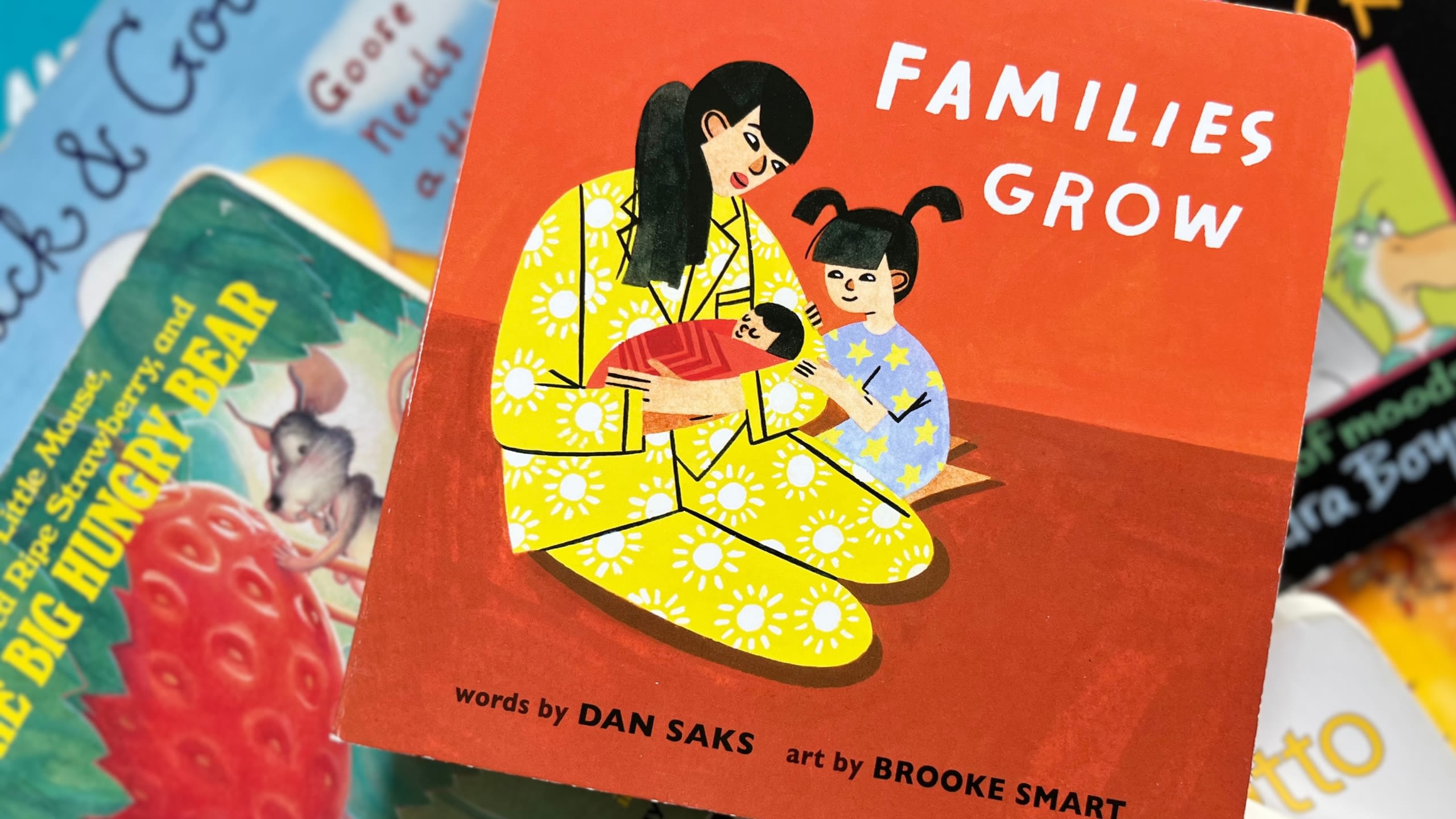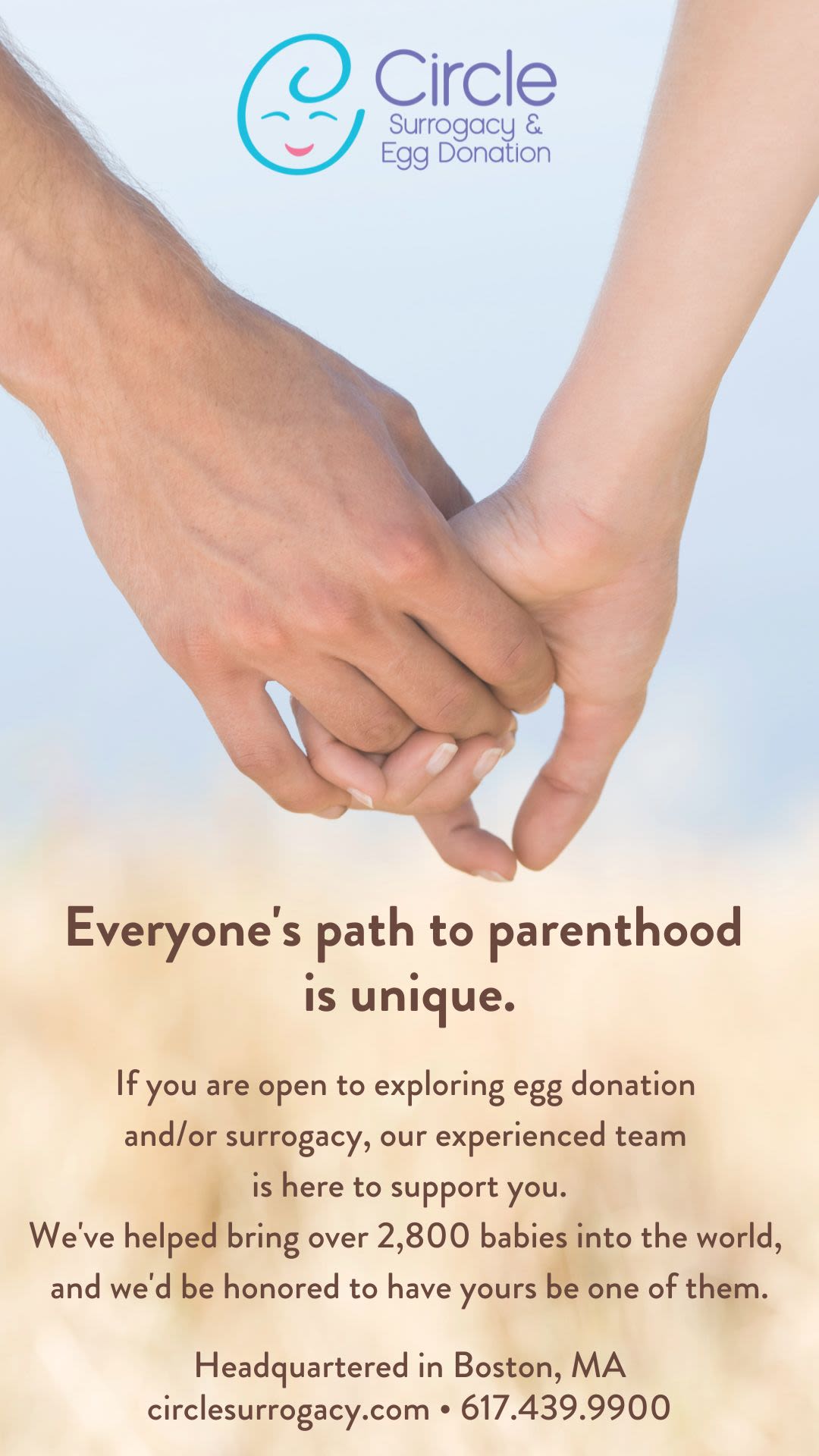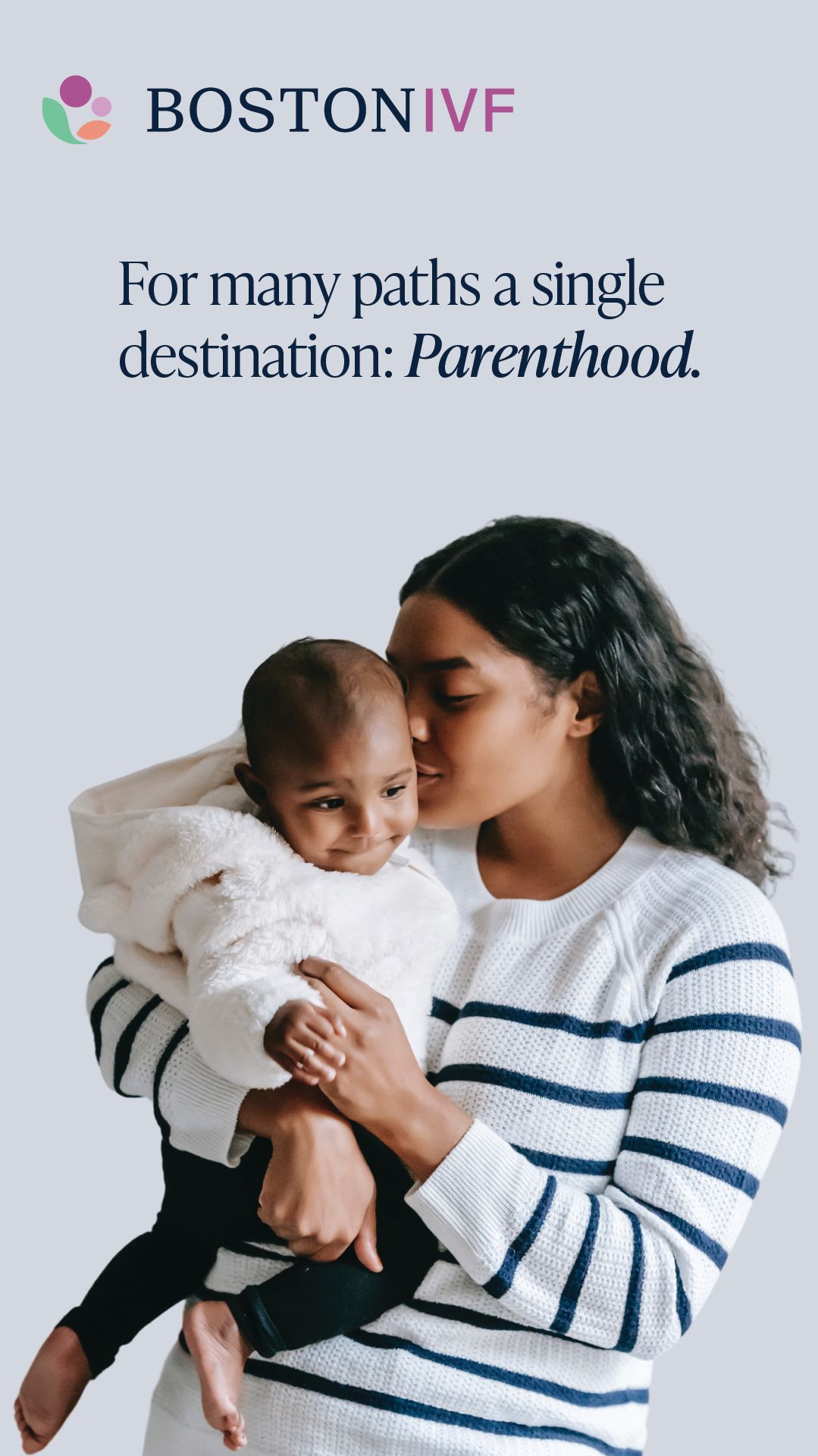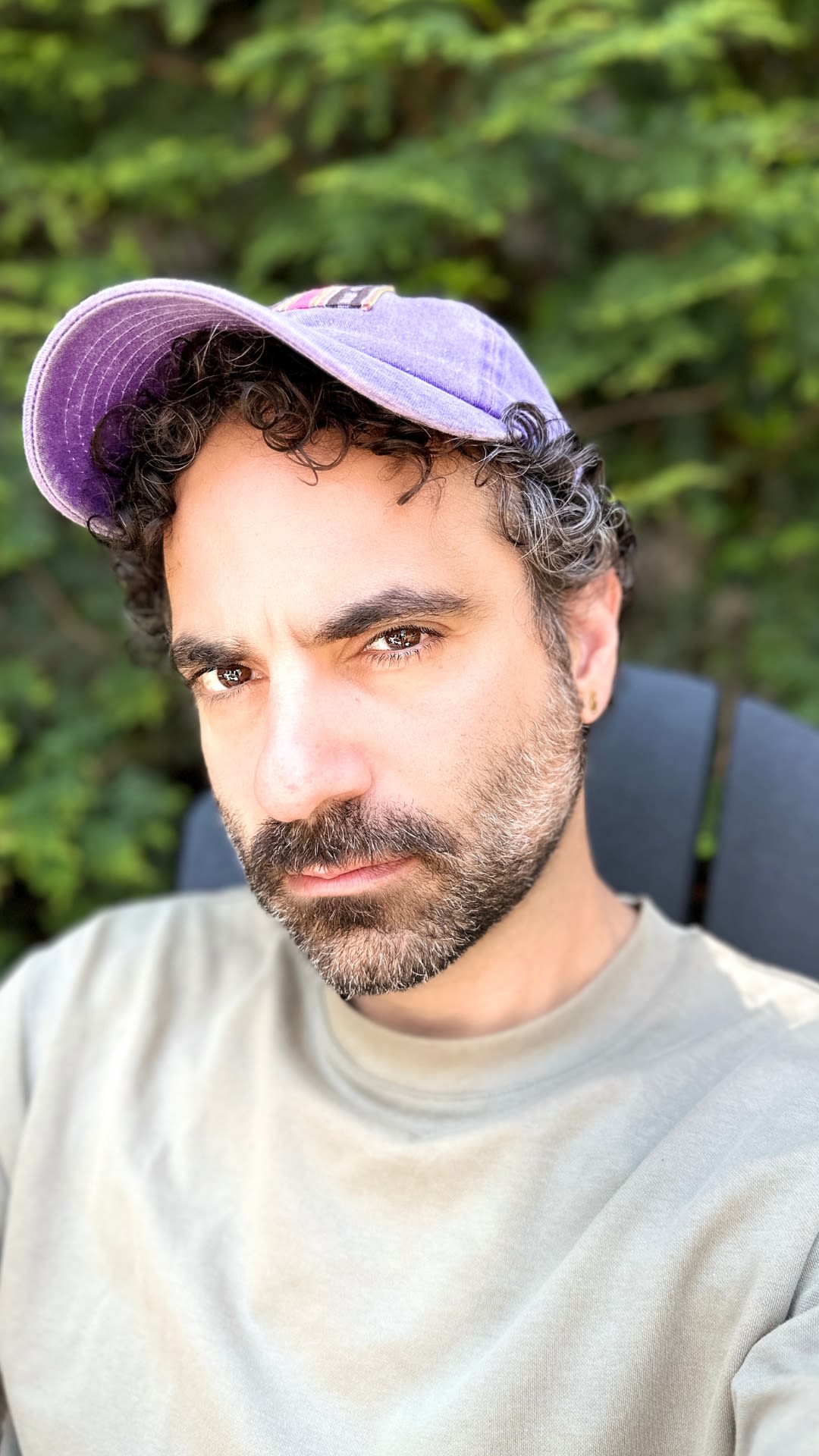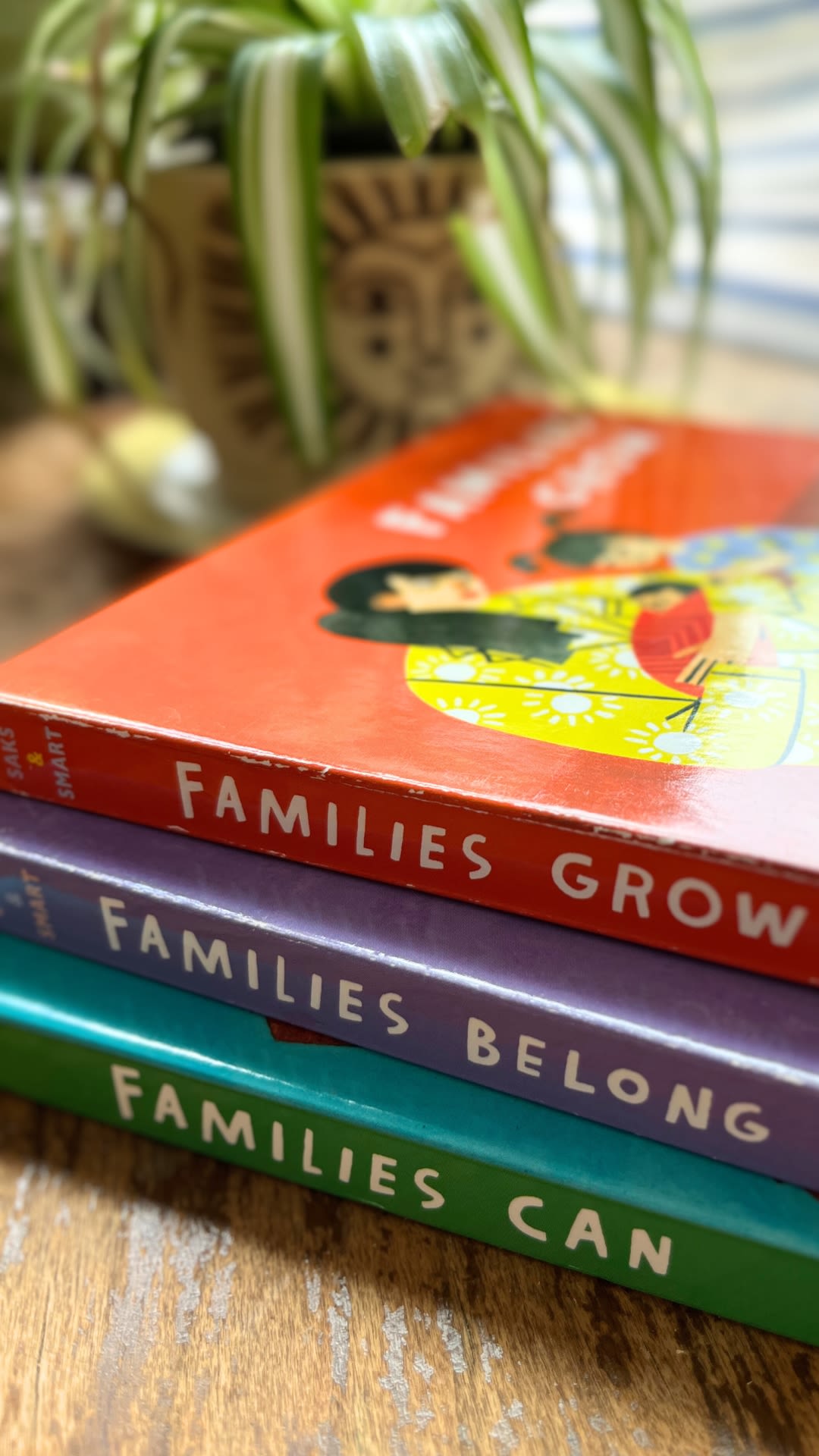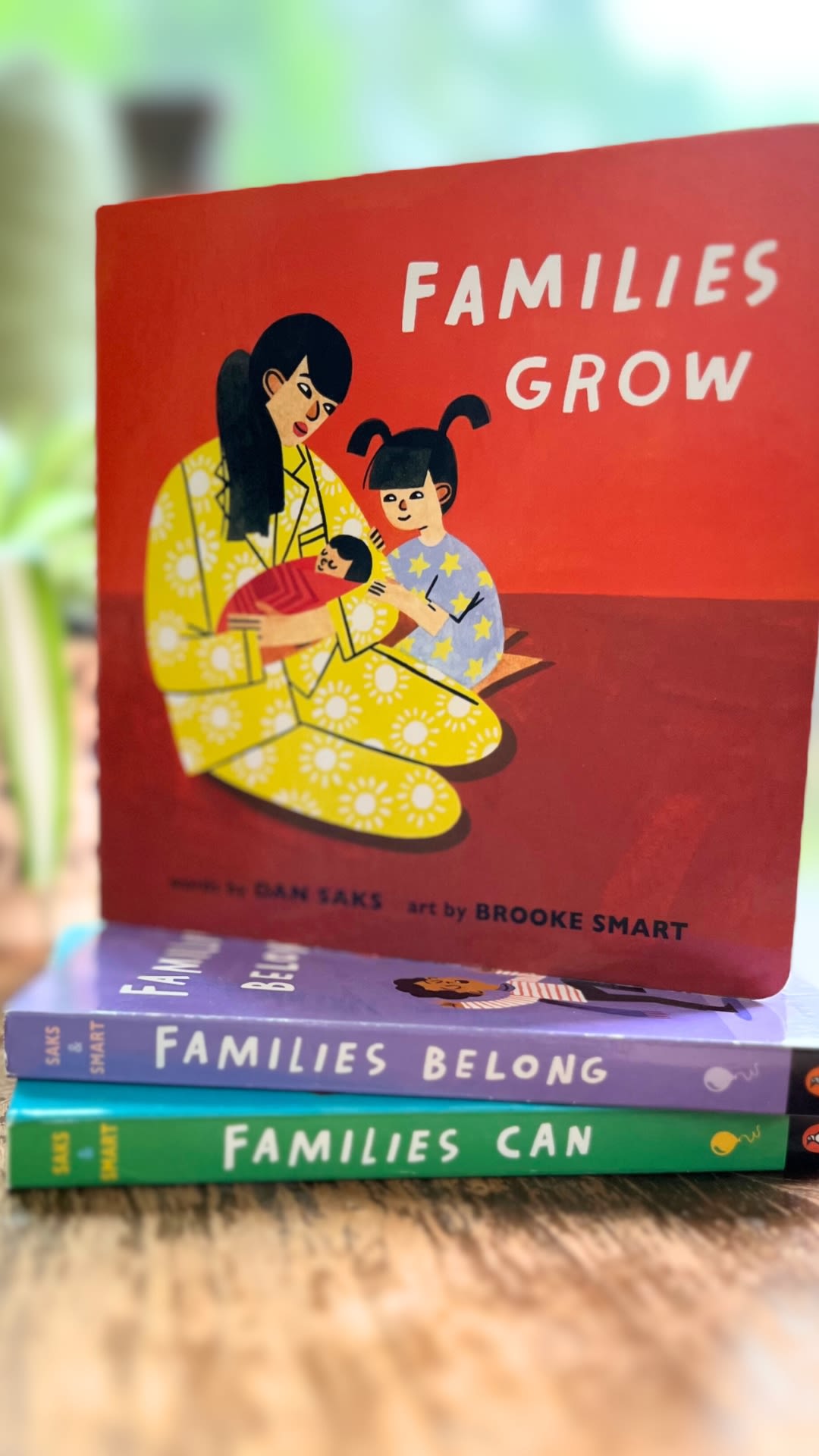Where Do Babies Books Come From?
A conversation with Dan Saks, author of Families Grow
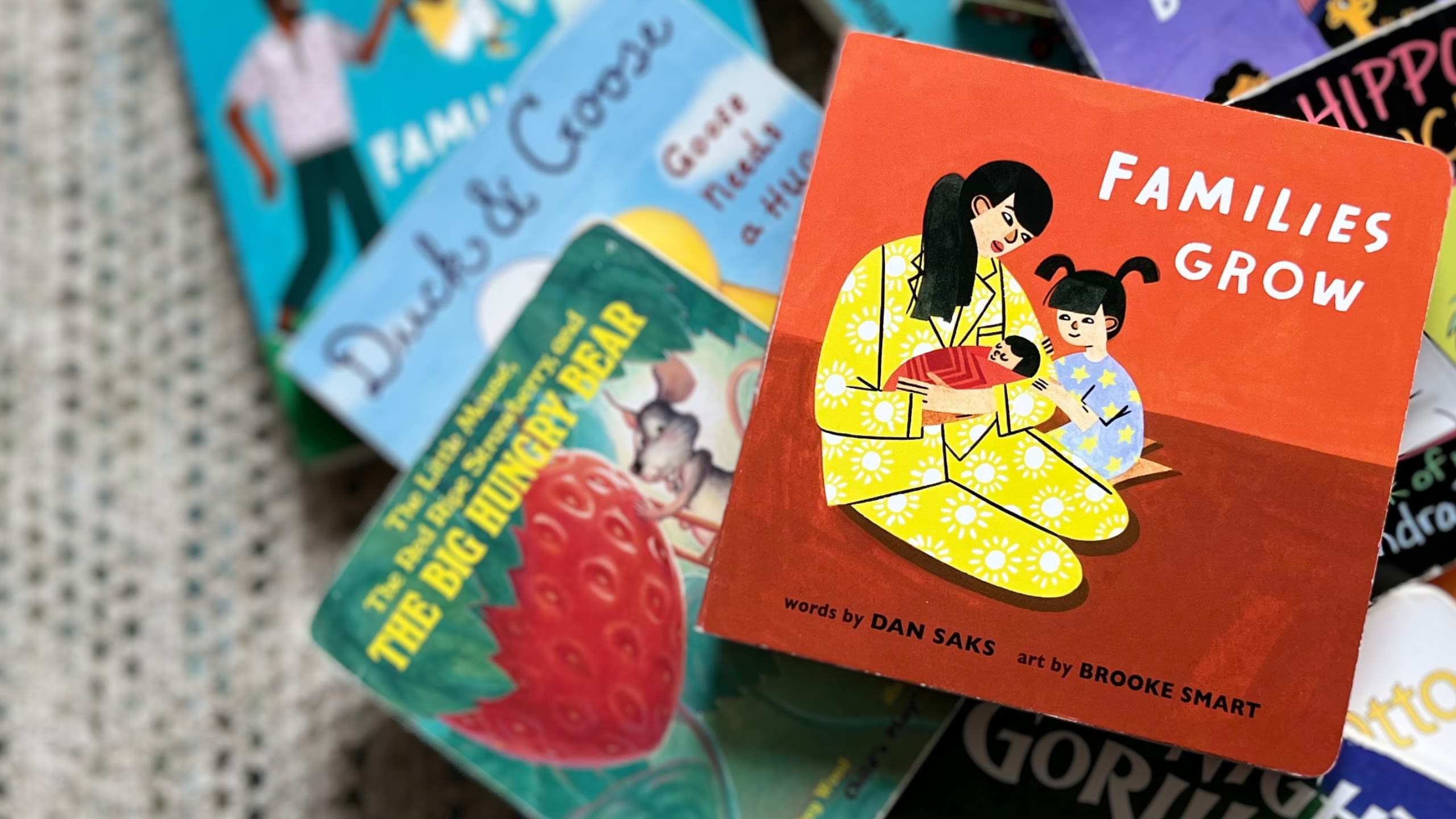
As an early childhood educator, I’ve always been on the lookout for books presenting accurate, age-appropriate information about what makes a family.
The search became personal several years ago when I learned that pregnancy would be an unacceptable risk for me on account of my medical history. My interest intensified as my husband and I began to work with a fertility clinic and surrogacy agency.
We were fortunate to move forward, but with no baby bump to announce my growing family, I needed a way to tell my students about my upcoming parental leave. I found one issue-specific book intended for a child whose parent was a gestational carrier, and this only got me so far.
I ended up making a book for my students using Powerpoint and colored pencils.
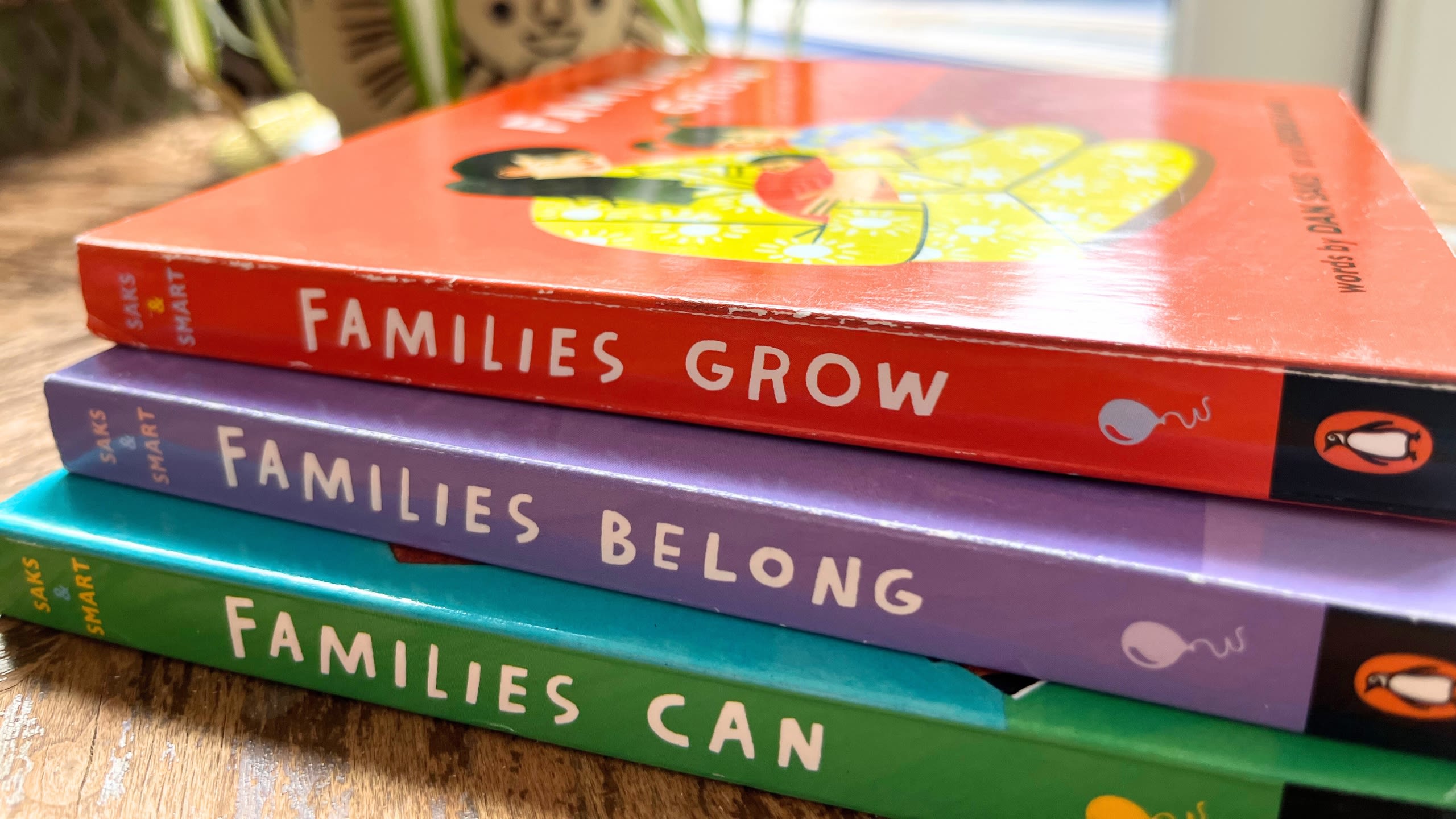
Dan Saks, a musician, music educator, and host of the children’s podcast Noodle Loaf, has staked his career on creating children’s art that is both joyful and loving, conveying messages of inclusion.
A few years ago, a publisher reached out to Saks to see if he might adapt a song from his podcast, “Families Belong”, into a book for young children. From this conversation a set of three board books, Families Belong, Families Can, and Families Grow (Rise x Penguin Workshop, 2021) was born.
The series, written by Saks and illustrated by Brooke Smart, hit shelves in 2021 to warm reviews. Programs with national reach like Dolly Parton’s Imagination Library and Kellogg’s Feeding Reading program have selected titles for distribution.
I stumbled across a copy of Families Can when my son was a toddler pulling books from the shelves at the public library. Saks’ board books became favorites at home and in my classroom. Though Families Grow hadn’t been around when I gathered my students on the rug to share my news, my co-teacher did read it aloud to share news of her pregnancy in 2021.
Families Grow presents the facts in simple rhyming text, starting with the idea that for a family to grow, there must be a “wish.”
The text alludes to surrogacy: “The belly may belong to Mom, but also it may not./ Sometimes another special belly is the perfect spot;” and to foster care and adoption: “Sometimes it may take longer before a baby’s home./ He might make stops along the way while he is getting grown.” Hugs, kisses, snuggles, and lullabies abound.
With each rhyme, we meet a different family painted in bold gouache and watercolor, some among them single parents, same-sex, and interracial couples, depicted with a wide range of skin tones, hair styles, and body types.
Naturally, I was curious what went into creating such a book. Saks generously agreed to speak with me by phone to describe the process of writing Families Grow. To launch the conversation, I shared an anecdote:
One day, I needed to help a student in crisis, and another teacher came in to cover my class. I reached for Families Grow, one of the books in closest reach, and handed it to her. She is part of a same-sex marriage and has a child through donor conception. After reading the book aloud to my students, my colleague reported, “umm, I did not have to change a single word of that book when I read it aloud. A single word. That never happens.”
Saks responded, “that gives me chills.”
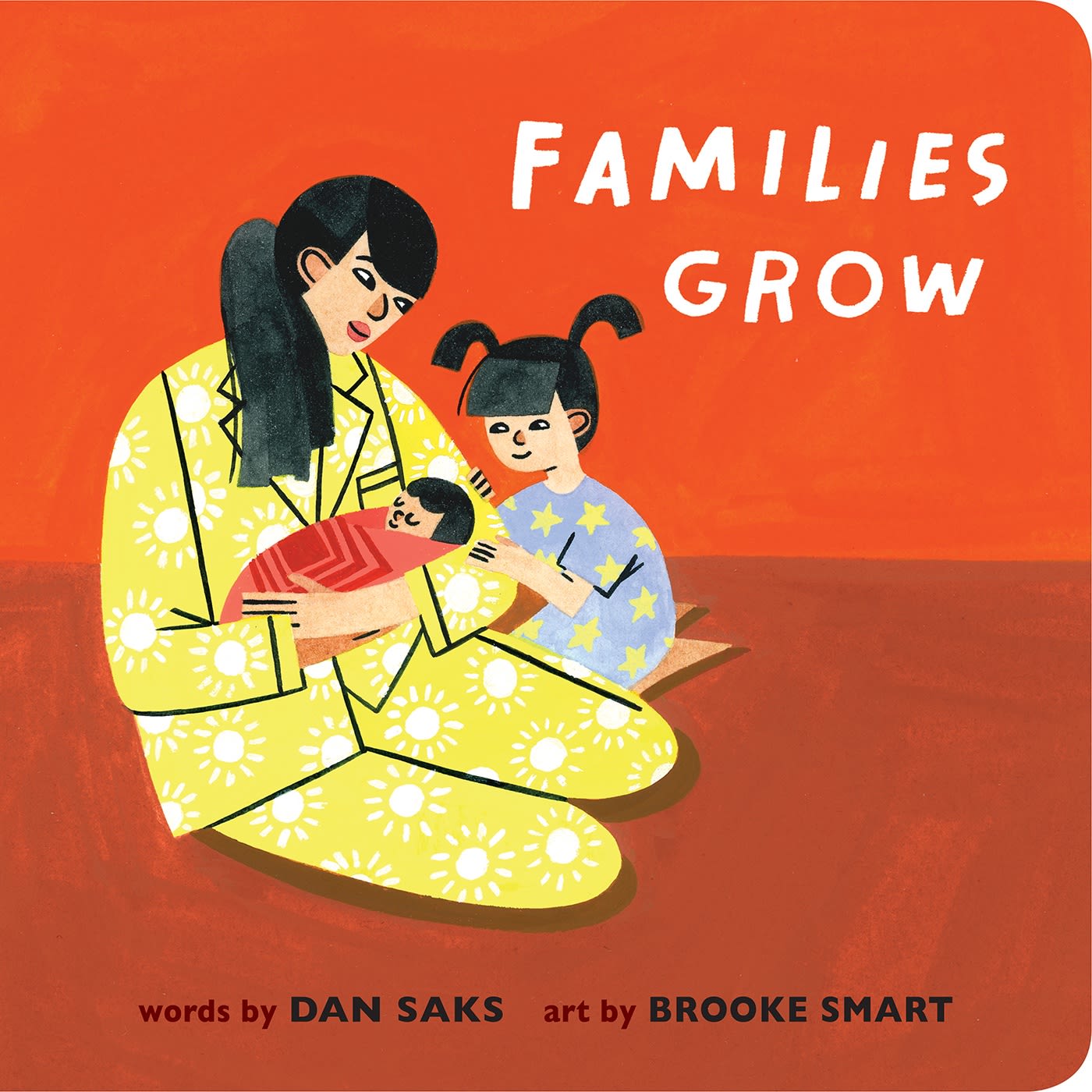
Here’s an interview with Dan Saks, edited for length and clarity.
Resolve New England: When you were a kid, what questions did you have about families? What did you learn about what was “normal?”
Dan Saks: My mother worked at an adoption agency when I was young. My dad was the rabbi at a gay and lesbian synagogue in Washington, DC. All family types were within my universe including trans folks in search of a supportive community. From a young age I learned a message of acceptance and empathy and inclusion, even within a religious context.
RNE: Drafting Families Grow, did you start with a blank page?
DS: We wanted to do a third book to accompany Families Belong and Families Can. With my editor, I did a lot of brainstorming about what this third book should be about. When we landed on this idea, one of my closest friends had been doing IVF for a long time and was really struggling. Ultimately her daughter was carried by her sister-in-law through such a generous act of love.
It made me think about other people in my community, queer friends who adopted, and how there are so many issue books. Very specific issue books. Your mom is a surrogate, and so on.
I wanted to write a maximally inclusive book: these are the places babies come from. After we landed on that idea, I realized how hard it would be.
RNE: Say more about that. What was challenging in drafting a book about how families grow?
DS: I knew if I didn’t do a good job it was going to land so . . . weirdly. We’re talking to preschoolers. The language in the book can’t be a clunky metaphor that is over their heads, or too specific and uncomfortable for a parent to read. It has to have magic to it, not like, ‘here’s a list of where babies come from.’
I wrote several emails to my editor stating, “I can’t do this, I’m not happy about it, and I don’t want to make a clunky book.” But, I massaged it one word at a time, until I got to an okay place. I called fertility clinics and surrogacy agencies, embarking on a research process I had not done with the other two books. I have two kids “the old-fashioned way.” I had not been fully immersed in the topic.
RNE: Tell me more about the research process.
DS: I had long coffee dates with friends, and said, “tell me about the adoption process,” for example. “Tell me about how you talked to your kids about it, how do you want the classmates of your kids to understand it?”
I try to imagine my books being read to a class and being for the classmate. I did the same with friends who’d had children via surrogacy. Then I tried to throw all of that in the hopper until I came up with something I felt really good about.
The editor suggested the back matter with two pages of definitions [words like womb, birth parents, adoption, forever parents]. They consulted an authenticity reader who offered a couple of small notes– at that point it was just tweaking a word here or there, feeling inclusive for trans parents . . . I do want everyone to read this and feel seen.
RNE: Were there any major changes from draft to published text?
DS: IVF figured more prominently in the draft. But it came up in conversations that IVF kids don’t necessarily think of themselves as “IVF kids.”
RNE: Families Can and Families Grow don’t feel didactic – what choices did you make to achieve that?
DS: They rhyme. I’m a musician and songwriter first. I didn’t want to be didactic, and I didn’t want to write an issue book.
I wanted the book to feel like a celebration of the desire and love from which families form, with the method almost being beside the point.
RNE: Families Belong, Families Can, and Families Grow came out during the pandemic. Have you gotten to read these books aloud to audiences of kids and families? What memories stand out from those readings?
DS: They were definitely a pandemic-era release. I was hoping to do all kinds of readings. More recently, at the Newark Museum of Art there was an older guy in the audience with a couple of kids. I was reading a line from Families Can about how sometimes there’s one grownup and he raised his hand and was like “yup,” and then I got to the line about grandparents and he raised his hand again, like “yup.”
RNE: Anything else to add?
DS: I’m proud of these books. I definitely was worried about writing them badly, but am really pleased with how they turned out. I never fancied myself an author so the whole process was a learning process and a really joyous one.
Dan Saks, a musician, music educator, and host of the children’s podcast Noodle Loaf, has staked his career on creating children’s art that is both joyful and loving, conveying messages of inclusion.
A few years ago, a publisher reached out to Saks to see if he might adapt a song from his podcast, “Families Belong”, into a book for young children. From this conversation a set of three board books, Families Belong, Families Can, and Families Grow (Rise x Penguin Workshop, 2021) was born.
The series, written by Saks and illustrated by Brooke Smart, hit shelves in 2021 to warm reviews. Programs with national reach like Dolly Parton’s Imagination Library and Kellogg’s Feeding Reading program have selected titles for distribution.
I stumbled across a copy of Families Can when my son was a toddler pulling books from the shelves at the public library. Saks’ board books became favorites at home and in my classroom. Though Families Grow hadn’t been around when I gathered my students on the rug to share my news, my co-teacher did read it aloud to share news of her pregnancy in 2021.
Families Grow presents the facts in simple rhyming text, starting with the idea that for a family to grow, there must be a “wish.”
The text alludes to surrogacy: “The belly may belong to Mom, but also it may not./ Sometimes another special belly is the perfect spot;” and to foster care and adoption: “Sometimes it may take longer before a baby’s home./ He might make stops along the way while he is getting grown.” Hugs, kisses, snuggles, and lullabies abound.
With each rhyme, we meet a different family painted in bold gouache and watercolor, some among them single parents, same-sex, and interracial couples, depicted with a wide range of skin tones, hair styles, and body types.
Naturally, I’ve been curious what went into creating such a book. The series author, Dan Saks, generously agreed to speak with me by phone to describe the process of writing Families Grow. To launch the conversation, I shared an anecdote:
One day, I needed to help a student in crisis, and another teacher came in to cover my class. I reached for Families Grow, one of the books in closest reach, and handed it to her. She is part of a same-sex marriage and has a child through donor conception. After reading the book aloud to my students, my colleague reported, “umm, I did not have to change a single word of that book when I read it aloud. A single word. That never happens.”
Saks responded, “that gives me chills.”

Here’s an interview with Dan Saks, edited for length and clarity.
Resolve New England: When you were a kid, what questions did you have about families? What did you learn about what was “normal?”
Dan Saks: My mother worked at an adoption agency when I was young. My dad was the rabbi at a gay and lesbian synagogue in Washington, DC. All family types were within my universe including trans folks in search of a supportive community. From a young age I learned a message of acceptance and empathy and inclusion, even within a religious context.
RNE: Drafting Families Grow, did you start with a blank page?
DS: We wanted to do a third book to accompany Families Belong and Families Can. With my editor, I did a lot of brainstorming about what this third book should be about. When we landed on this idea, one of my closest friends had been doing IVF for a long time and was really struggling. Ultimately her daughter was carried by her sister-in-law through such a generous act of love.
It made me think about other people in my community, queer friends who adopted, and how there are so many issue books. Very specific issue books. Your mom is a surrogate, and so on.
I wanted to write a maximally inclusive book: these are the places babies come from. After we landed on that idea, I realized how hard it would be.
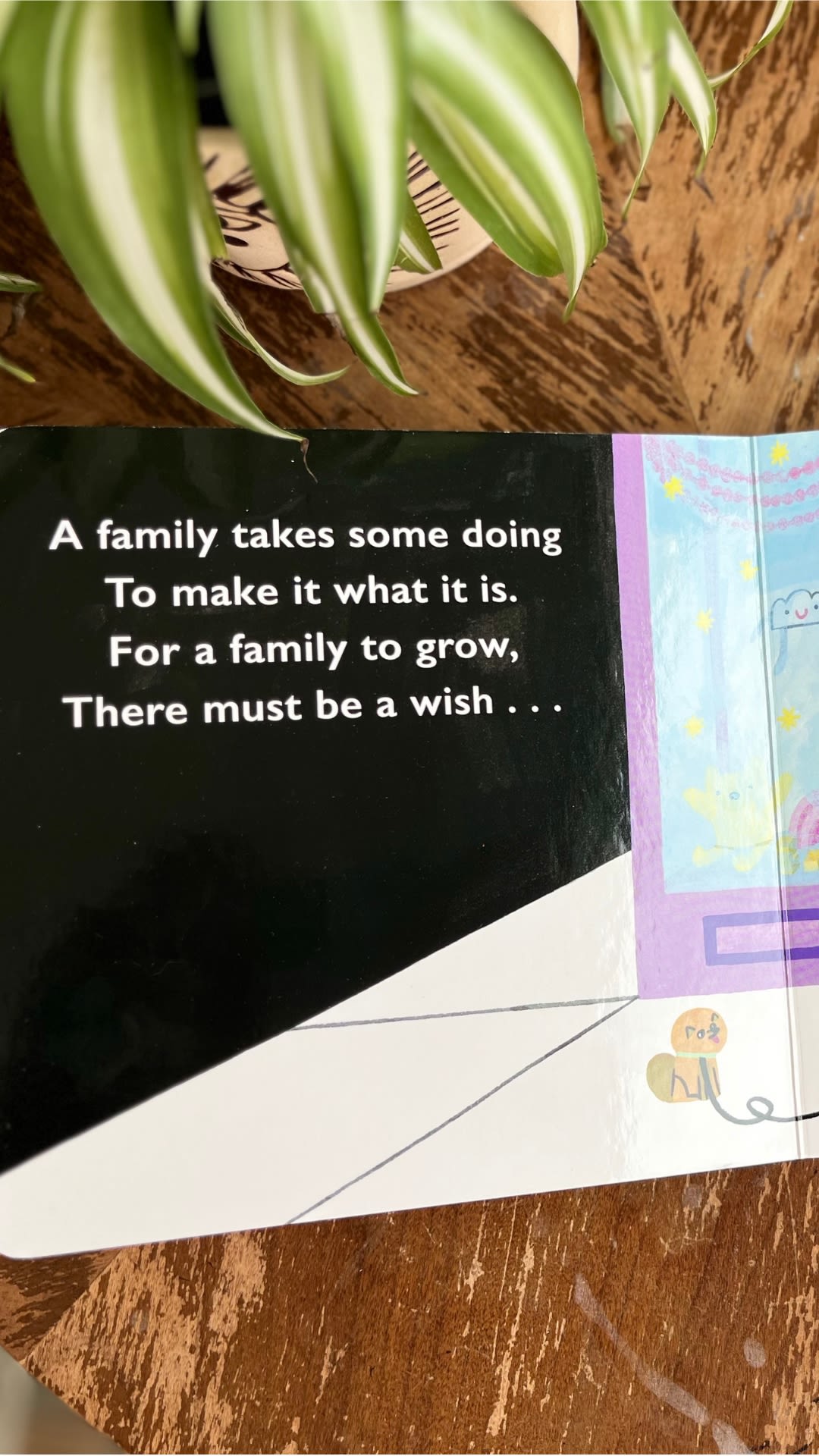
RNE: Say more about that. What was challenging in drafting a book about how families grow?
DS: I knew if I didn’t do a good job it was going to land so . . . weirdly. We’re talking to preschoolers. The language in the book can’t be a clunky metaphor that is over their heads, or too specific and uncomfortable for a parent to read. It has to have magic to it, not like, ‘here’s a list of where babies come from.’
I wrote several emails to my editor stating, “I can’t do this, I’m not happy about it, and I don’t want to make a clunky book.” But, I massaged it one word at a time, until I got to an okay place. I called fertility clinics and surrogacy agencies, embarking on a research process I had not done with the other two books. I have two kids “the old-fashioned way.” I had not been fully immersed in the topic.
RNE: Tell me more about the research process.
DS: I had long coffee dates with friends, and said, “tell me about the adoption process,” for example. “Tell me about how you talked to your kids about it, how do you want the classmates of your kids to understand it?”
I try to imagine my books being read to a class and being for the classmate. I did the same with friends who’d had children via surrogacy. Then I tried to throw all of that in the hopper until I came up with something I felt really good about.
The editor suggested the back matter with two pages of definitions [words like womb, birth parents, adoption, forever parents]. They consulted an authenticity reader who offered a couple of small notes– at that point it was just tweaking a word here or there, feeling inclusive for trans parents . . . I do want everyone to read this and feel seen.
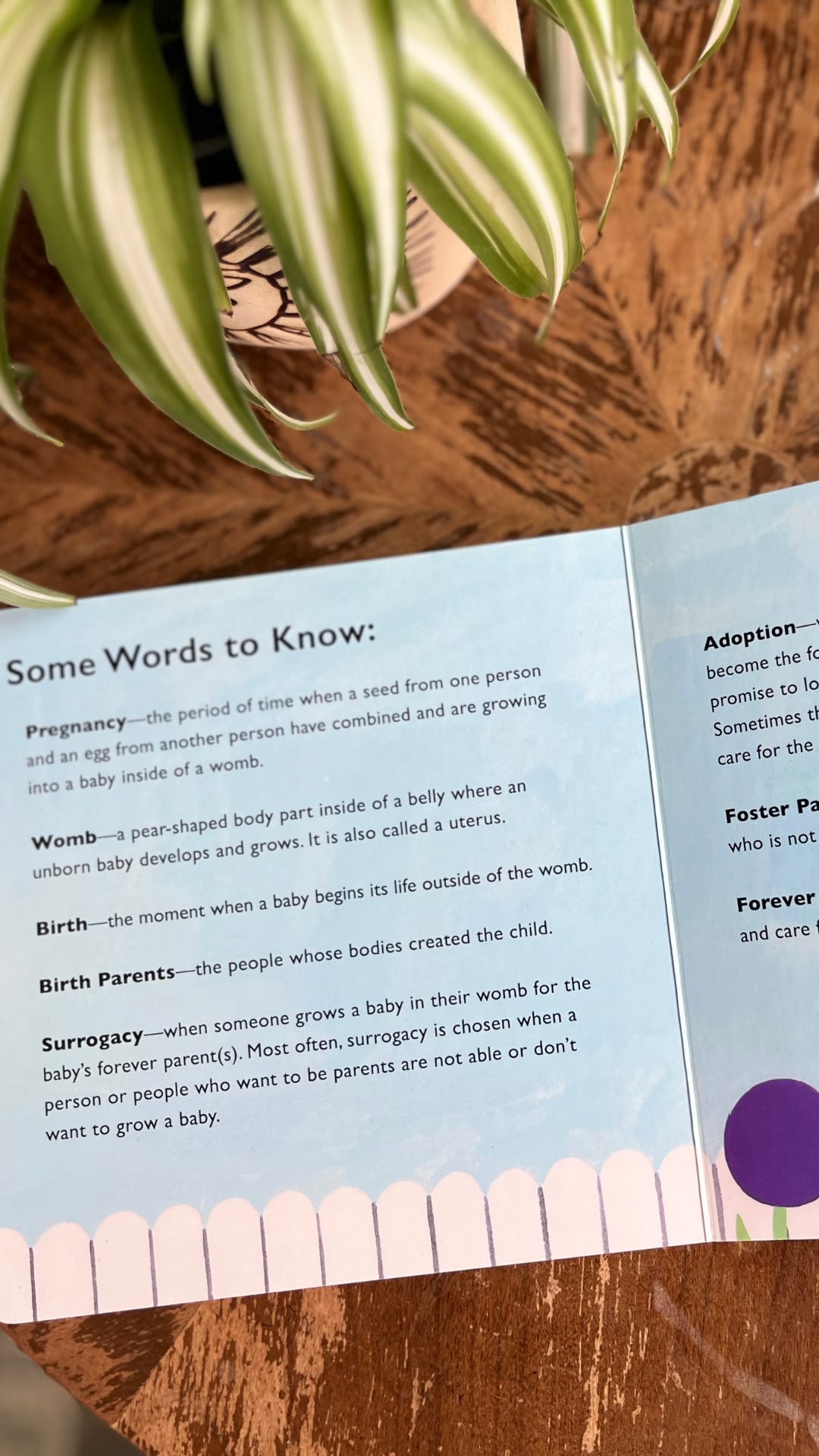
RNE: Were there any major changes from draft to published text?
DS: IVF figured more prominently in the draft. But it came up in conversations that IVF kids don’t necessarily think of themselves as “IVF kids.”
RNE: Families Can and Families Grow don’t feel didactic – what choices did you make to achieve that?
DS: They rhyme. I’m a musician and songwriter first. I didn’t want to be didactic, and I didn’t want to write an issue book.
I wanted the book to feel like a celebration of the desire and love from which families form, with the method almost being beside the point.
RNE: Families Belong, Families Can, and Families Grow came out during the pandemic. Have you gotten to read this book aloud to audiences of kids and families? What memories stand out from those readings?
DS: They were definitely a pandemic-era release. I was hoping to do all kinds of readings. More recently, at the Newark Museum of Art there was an older guy in the audience with a couple of kids. I was reading a line from Families Can about how sometimes there’s one grownup and he raised his hand and was like “yup,” and then I got to the line about grandparents and he raised his hand again, like “yup.”
RNE: Anything else to add?
DS: I’m proud of these books. I definitely was worried about writing them badly, but am really pleased with how they turned out. I never fancied myself an author so the whole process was a learning process and a really joyous one.

Resolve New England wants to hear from you!
What children’s books do you lean on when sharing with your child about their origins?
Which books did you think you’d love but never got traction?
What adjustments do you make as you read?
Amy Rothschild is a peer leader of the RNE Surrogacy Support Group. She taught preschool and kindergarten for more than ten years and is now focused on raising her son.
